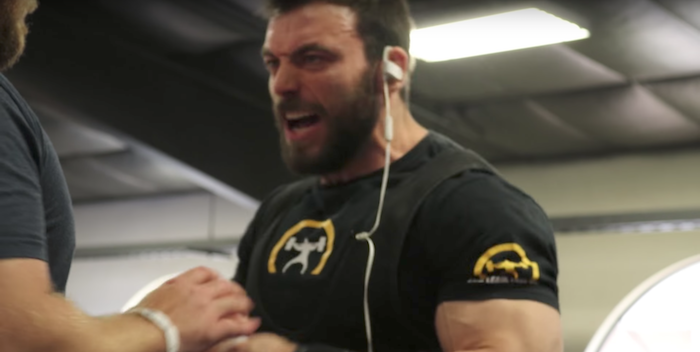
How to Maximize Your Mental Performance
The worst meet of my life: the 2013 USAPL Pro Raw Challenge at the Arnold. I came in with huge expectations, hoping to win my first international meet. Physically, my training had gone well; my strength was at an all-time high, I had made major improvements to my technique, and I knew that on my best day, I could finish at the top. I didn’t have the best day. In fact, I failed miserably -- because I had neglected my mental training. When I stepped on the platform to take my opening squat, I panicked. The crowd was loud, the lights were hot, my heart was in my throat, I broke out in a cold sweat. I unracked the bar and went straight down, and didn’t come back up. It wasn’t close. My second attempt was worse.
Your mental performance determines your physical potential. If you’re cool, calm, and collected under pressure, you’re going to perform close to your best even in difficult situations. If you panic, that’s impossible. And yet very few powerlifters train their brains.
The good news: you can train your brain. You can find and practice mental strategies to have better workouts, better meets, and really, to improve all aspects of your life. Obviously, everyone has to find their own strategies, but here are some suggestions that have made a huge performance in my own powerlifting career:
Meditation
I really recommend the mobile app Headspace, because it really walks you through the process of meditation progressively and has sections specifically designed to improve sport performance. But really, any sort of mindfulness meditation will help. The goal here is just to learn to distance yourself from your thoughts, which is hugely important at a meet when your thoughts are all over the place and you still need to perform at your best. This lead to improvement in categories like:
- Training as preparation, not competition
- Focus during a competition
- Staying motivated
- Recovery
Ultimately, though, it all comes down to not getting caught up in thinking. That applies to both positive and negative thinking. Obviously stressing about everything that might go wrong during or before a meet isn’t going to help, but obsessing over winning or doing everything perfect or even how strong you are doesn’t help either -- you need to stay present in the moment to really get in the zone on meet day, and the only way to get better at that is by practicing it on a daily basis.
Reflection.
Personally, I really like to win, and part of my mental prep is reflecting on why I want to or even need to win. Needing to win sounds like a good thing, but it actually just creates a lot of unnecessary pressure, and even simply realizing that can make meet day feel less “heavy.” On the other hand, a lot of people fear losing, and reflecting on that can help in the exact same way.
Controlled Breathing.
I have a very specific practice for breathing before a big lift that helps me to stay calm, focused, and alert. I like to take 5 deep breaths using a 5/5 cadence (5 seconds inhale, 5 seconds exhale) with my eyes closed. That type of rhythmic breathing has been shown to increase heart rate variability, which in turn improves performance. It’s important to practice this in the gym because it takes a little while to “click,” especially if you usually get amped up before a heavy attempt.
Avoid Social Media.
I’m actually not great at this, but for me, all the posturing, trolling, and other bullshit on social media really distracts me from my training, so I try to avoid it as much as possible leading up to a meet.
Have a Coach. Trust Him (or Her).
Jacob Cloud and I go over every possible scenario for meet day in detail about a month in advance, and pick attempts that I’m comfortable with for a best case, worst case, and somewhere in between. Then, on meet day, he calls every one of my attempts. Obviously you have to have a coach that you trust for this strategy to work, but if you do, it takes a lot of the thinking (and therefore pressure) out of the meet.
Putting It All Together
Remember, these are just suggestions -- there’s an infinite number of possibilities for mental prep, and you’ll have to do some work to figure out what makes you tick. Once you find the right routine, you need to practice it in training, because the high-pressure situation of a meet is only going to make it harder to keep it all together.
The Clutch Factor
The 2013 Arnold was such a terrible experience for me that I took a full year and a half away from competition after that, but since focusing on my mental game, it has steadily improved every meet since. At the US Open I was able to stay in the zone for the entire meet -- to focus on the platform, to relax and recover between lifts, and to have a great time the whole day. So when deadlifts came around, even with $40,000 on the line, I didn't feel nearly as much pressure as I had even at local meets in the past, when nothing at all was on the line.
I have no doubt that my mental game made all the difference at the US Open -- it gave me the clutch factor I needed to win. And now that I know how to strengthen that aspect of my lifting, I’m looking forward to continuing to strengthen both my body and my mind leading up to my next meet, whatever it is.








